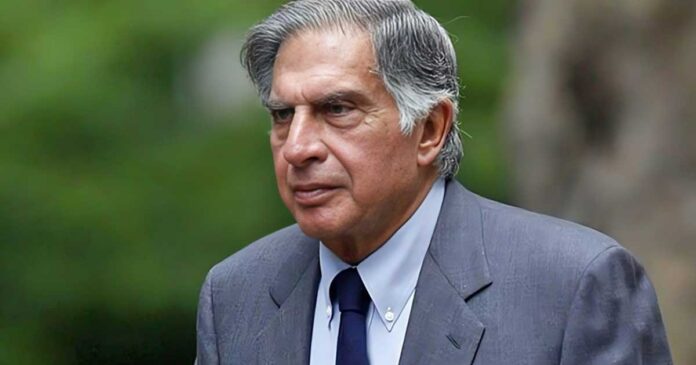Ratan Tata, one of India’s most revered business leaders, has made an indelible mark on the global stage through his visionary leadership and enduring contributions to industry, philanthropy, and society. Born on December 28, 1937, into the Tata family, he is the great-grandson of Jamsetji Tata, the founder of Tata Group. Ratan Tata’s life has been characterized by his commitment to ethical business practices, innovation, and nation-building, making him a prominent figure in both the corporate world and beyond.
Early Life and Education
Ratan Tata was raised in Mumbai, and after his parents’ separation, he was brought up by his grandmother, Lady Navajbai Tata. He pursued his education at prestigious institutions, including the Campion School and Cathedral and John Connon School in Mumbai. Later, he attended Cornell University in the United States, where he earned a degree in Architecture and Structural Engineering. He also completed an Advanced Management Program from Harvard Business School in 1975.
Journey in the Tata Group
Ratan Tata’s journey in the Tata Group began in 1962, when he joined Tata Steel on the shop floor, working alongside blue-collar workers in Jamshedpur. This experience gave him insight into the operations of the company at the grassroots level, shaping his leadership style. Over the years, he worked across various Tata companies, steadily rising through the ranks.
In 1991, Ratan Tata succeeded J.R.D. Tata as the Chairman of Tata Sons, the holding company of the Tata Group. Under his leadership, Tata Group saw a remarkable transformation. He is credited with taking the company global, significantly expanding its international footprint through strategic acquisitions such as Tetley Tea, Corus Steel, and Jaguar Land Rover. These moves not only diversified Tata Group’s business portfolio but also positioned the company as a global powerhouse.
Innovation and Risk-Taking
One of Ratan Tata’s most notable achievements is the launch of the Tata Nano in 2008, an ambitious project aimed at producing the world’s cheapest car, making it accessible to India’s middle-class population. Although the Nano did not achieve commercial success as anticipated, it showcased Tata’s commitment to innovation and affordable solutions for the masses.
In addition, Tata was instrumental in the establishment of Tata Consultancy Services (TCS), now a global leader in IT services, and Tata Motors, which became a leader in both the commercial and passenger vehicle sectors. His ability to balance risk-taking with long-term strategic vision set him apart as a leader.
Philanthropy and Legacy
Beyond business, Ratan Tata has always emphasized the importance of giving back to society. Under his leadership, the Tata Group contributed significantly to health, education, and rural development. The Tata Trusts, which he chairs, is one of India’s oldest and most generous philanthropic organizations. He has donated millions towards causes like rural education, clean drinking water, and healthcare.
Tata’s approach to business was deeply rooted in ethics and values, prioritizing social responsibility alongside profit. His vision for the Tata Group was one of inclusive growth, which focused on uplifting communities while also expanding the company’s reach.
Awards and Recognition
Ratan Tata has received numerous accolades for his contributions to industry and society. He was honored with the Padma Bhushan in 2000 and the Padma Vibhushan in 2008, India’s third and second-highest civilian honors, respectively. His influence extends beyond India, with global recognition for his leadership, including honorary degrees from several international universities.
Conclusion
Ratan Tata’s legacy is not just about his business acumen but also his commitment to ethical leadership and societal progress. Through his relentless pursuit of excellence, he transformed Tata Group into a global conglomerate while upholding the values of integrity and social welfare. His influence continues to inspire entrepreneurs, business leaders, and philanthropists worldwide. Today, even in his retirement, he remains a towering figure in Indian industry and an enduring symbol of visionary leadership.


